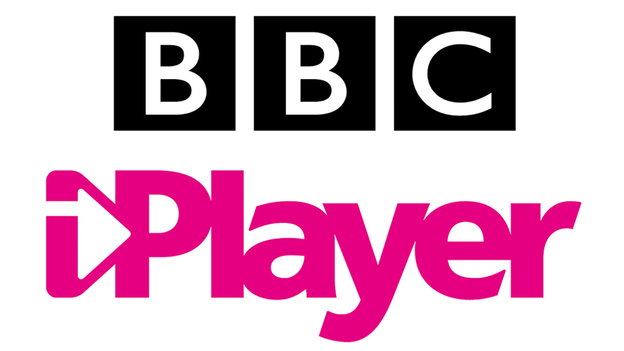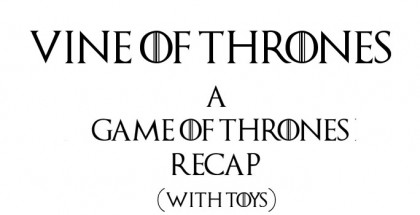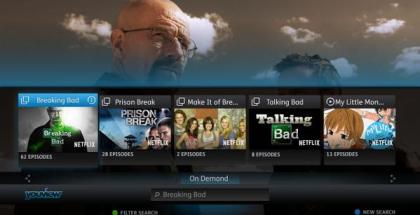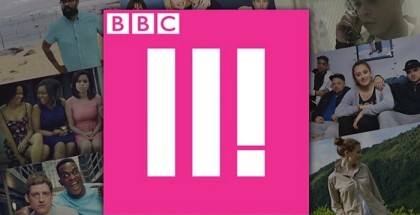How BBC iPlayer is becoming more like Netflix
David Farnor | On 08, May 2016
BBC iPlayer is taking a leaf out of Netflix’s book and making its streaming service more and more personalised.
The idea of “myBBC” was first announced in 2015 by Director-General Tony Hall, who said he wanted to build a more two-way relationship with the broadcaster’s audience, “not telling you what customers like you bought, but what citizens like you would love to watch and need to know”.
In an age of Amazon shopping lists, it might not sound like anything new, but the idea is a big one for the corporation, effectively reinventing public service broadcasting through data.
Netflix has made a global success out of the ability to present users with videos they would like – analysing how quickly people click on different genres and even different versions of the same artwork to determine the most effective way to present its home screen. Ideally, it means a VOD platform that people will never be frustrated by – or want to cancel – because they always find something new and good to watch.
The BBC has already started to emulate that strategy, using sign-in technology to focus on individual users, which now applies across BBC online, including recommending programmes the Beeb thinks you’ll like, notifying you when new episodes of favourite programmes go on BBC iPlayer, or when your football team scores a goal.
The measures have “already proved popular”, says the BBC. Indeed, since May 2015, 6.4 million users have signed in to the BBC, with over a third coming back on a monthly basis. Since Tony Hall’s speech, in which he shared the BBC’s plans for myBBC, 1.6 billion BBC programmes have been recommended to viewers and listeners based on what they’ve previously watched/listened to and are interested in. 1.4 billion personalised alerts have been sent to fans via the BBC Sport app – along with 27 billion breaking news alerts from the BBC News app. In the last three months alone, 1.7 million people have personalised their myNews section on the BBC News app – selecting over 12 million topic combinations to track.
Last summer, BBC iPlayer launched My Programmes, allowing users to see the shows they’ve added, programmes they’re mid-way through and, with the rollout of that BBC ID across all of its services, which box sets have been purchased from BBC Store to then seamlessly watch through the iPlayer app. Cross-device pause and resume has also been introduced, another Netflix staple, so that users can now catch up with EastEnders on a smartphone in the morning and continue where they left off on a laptop over lunch.
In the last three months, audiences have used this pause/resume functionality on BBC iPlayer over 30 million times and are using general personalised experiences – including pause/resume, notifications and recommendations – an average of 800 million times a day.
The results have proven effective, boosting engagement among users: in the last quarter of 2015, signed-in users consumed 44 per cent more BBC content that those who weren’t signed in.
Now, the testing has got to the stage where the BBC is determining how audiences react to small, and sometimes large, changes in the way its products look – ensuring changes to the BBC homepage, iPlayer and BBC Sport benefit users and don’t “shock or confuse people”.
But the Beeb isn’t stopping there, taking the Netflix approach to its logical conclusion and using that insight to help decide what content it commissions too.
“Knowing more about audiences’ likes and dislikes is now enhancing the ways they get to experience BBC content,” explains the corporation: “These insights are also starting to be used to inform and improve decision making around current and future output… we can also understand what audiences are doing across the different devices and platforms they’re consuming BBC content on. Our audiences and marketing teams are also able to monitor social media more effectively to understand better how our audiences are responding to our TV, radio and news stories and content.”
With original and exclusive titles increasingly common on BBC iPlayer, the broadcaster’s use of big data has the potential to impact significantly the kind of content you’ll find to stream. In the next couple of months, the BBC will also be launching a new mobile app called BBC+, helping users discover collections of content they’re interested in from across the BBC.
The Netflix effect continues.




















